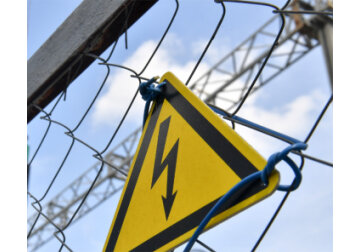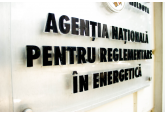
The price of electric energy to be supplied by Moldavskaya GRES to the right bank of the Nistru/Dniester River in January 2023 will remain at the same level of $73/MW.
This was communicated to journalists in Tiraspol by Minister of Economic Development of Transnistria Sergey Obolonik. He noted that the prices and parameters of the contract for electric energy supplies from the Moldavskaya GRES in January 2023 will remain at the level of December, while negotiations on February and March deliveries will continue, and they will not get any easier. According to him, Moldavskaya GRES undertakes to supply electric power for the needs of right bank Moldova at the level of the average daily indicators of the previous month. In January 2023, the Transnistrian region will get 5.7 million cubic meters of natural gas per day from Moldovagaz, the same as in December 2023. Sergey Obolonik noted that the monthly gas volume of 5.7 million cubic meters is not enough to meet all needs of the left bank of the Dniester in winter, since when the temperature drops, gas consumption will increase and it will affect gas distribution to the population and businesses. "The consumption of gas will increase in January, so it is important and necessary to save," said the head of the Ministry of Economic Development. According to him, there is enough gas for households, heating and businesses providing food security. Earlier, the state-owned Energocom reported that it had signed a contract for electricity supply from Moldavskaya GRES by December 2022 and would receive about 204 thousand MW of electricity. These volumes, together with bilateral contracts in Romania, will be enough for the entire consumption of the right bank of the Dniester. Deputy Prime Minister and Minister of Infrastructure and Regional Development Andrei Spinu noted that the parties had earlier agreed to consider the option of extending the contract for electricity supply from Moldavskaya GRES to January-March 2023 to provide electricity to the entire country. He said this contract is a reasonable compromise to provide citizens on both sides of the Dniester with electricity and gas, which also reduces the risk of mass blackouts. //27.12.2022 - InfoMarket.







